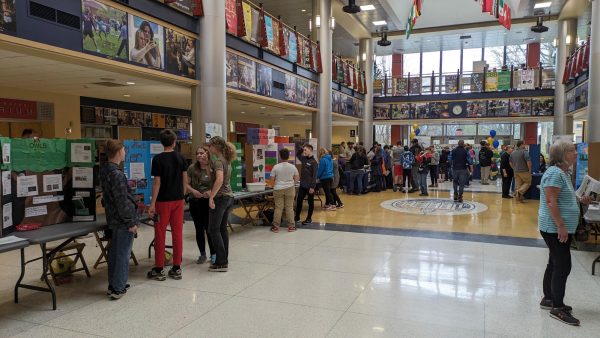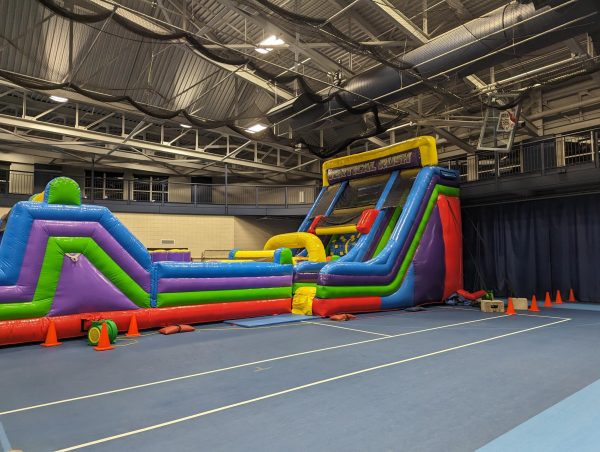COVID-19 compliance vital to return of athletics, other student activities
It has been almost a year since COVID-19 was declared a pandemic by the World Health Organization and almost nothing has been the same since then. With current cases dropping around the country, Allegheny College has plans to start getting back to normal.
One of the larger steps towards normalcy is the return of competition in athletics. Most winter and spring sports are scheduled to have a season, although winter sports will be shortened.
Plans have been put in place, but compliance is necessary in order to execute them.
The return of students to campus also brought the return of the Gator Pledge. Adhering to these rules will dictate how successfully the college will be able to pull off this all-in-one sports season.
Although Athletic Director Bill Ross was unable to speak on any disciplinary issues among student-athletes, he could confirm that none of Allegheny’s sports teams that are without competitive seasons are in that situation due to non-compliance.
“What we wanted to make sure first and foremost was that the spring sports didn’t have another season taken away from them because of COVID,” Ross said.
He also explained that the next priority for athletics was to make sure that winter sports were able to at least play a condensed schedule, since many of their seasons were interrupted last year.
Due to the nature of training for sports like swimming and diving, Ross noted that the late return date to campus made it too hard for them to build up to competition that would resemble what they are accustomed to.
Indoor track is another sports season that has been nixed in favor of only having an outdoor track season.
Although none of Allegheny’s sports teams had any competition last semester, most were able to practice in a progressively more game-like environment. Teams will still have to go through this phase-in approach but can progress at a faster pace this time around.
“Practices will look similar for all of the teams leading up to a certain point,” Ross said. “As long as everything goes well with positivity rate and everything that we’ve got to monitor to safely move on, then we’re looking to move into what the NCAA calls phase three of training. That’s where you can actually have competition, intrasquad scrimmages and all of that good stuff.
The college is confident that they will have a sports season and have released the winter and spring sports’ schedules to reflect that confidence.
Unlike large, division one colleges who can separate their athletes from the rest of campus, student-athletes at Allegheny live and go to classes with the rest of the student body. As a result, compliance from all students will be vital to the success of this year’s sports season.
Allegheny students have a good track record in this regard as positive cases on campus have stayed very low throughout the entire academic year.
Fraternities, sororities and other organizations on campus have had to change the way they do things in order to maneuver their way through this pandemic.
“COVID changed everything, to be honest with you,” said Phi Gamma Delta president Marcus Wolf, ’22. “Obviously all the typical ‘frat stuff’ that’s classified with us just naturally all went down the drain for the most part.”
By holding most of their fraternity meetings virtually, FIJI has steered clear of any compliance issues and has only had one positive COVID-19 case.
As the college introduces the concept of functional groups, organizations will be allowed to do more things in-person.
“We’ve looked into (functional groups) to do some outdoor things like grilling out or having campfires and stuff like that,” Wolf said.
Similarly, Alpha Chi Omega has also avoided any compliance issues and are considering using the school’s new concept for outdoor activities as well.
“One thing we talked about over break was going sled riding as functional groups,” said Alpha Chi Omega president Madison Miller, ’22.
While students will still be held to a high standard of safety, the expectation is that there will be more leniency from the college in regards to in-person meetings and activities for non-athletic clubs.
This leniency does not come as a result of compliance fatigue, but rather is in accordance with the current health status of the college.
Given the college’s plans for sports seasons and introduction of functional groups, students can expect to see Allegheny in its most normal state since students were sent home last March.

Jordan Greynolds, '22, is a features editor for The Campus newspaper and it is his second semester on staff. He is a business and religious studies double...






